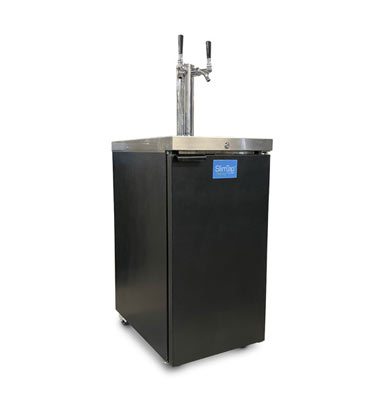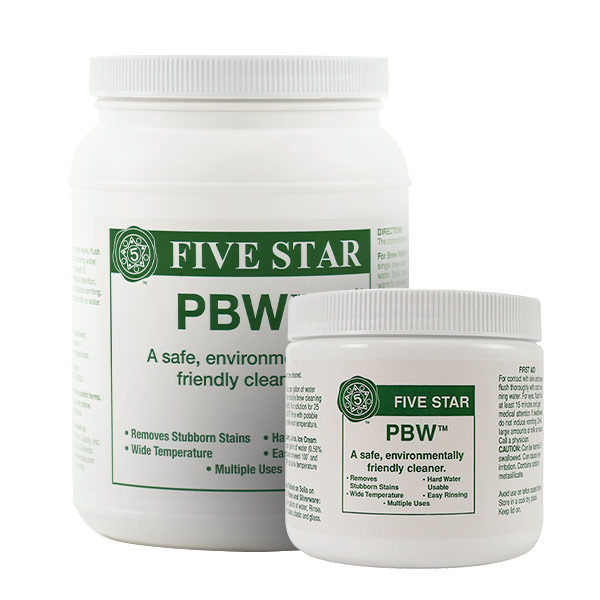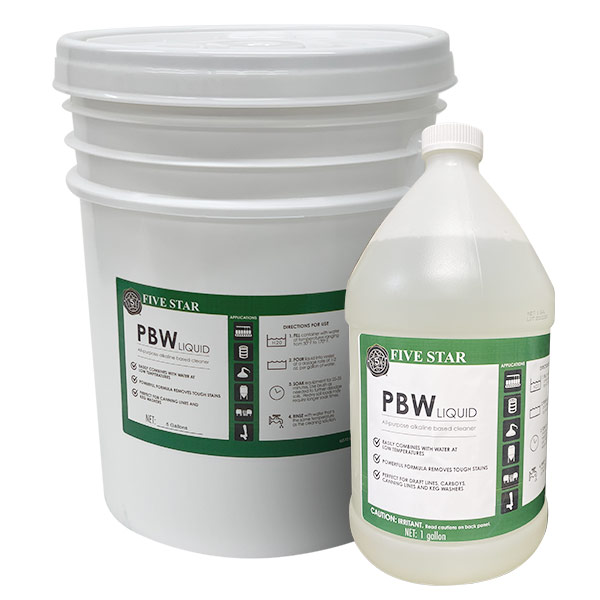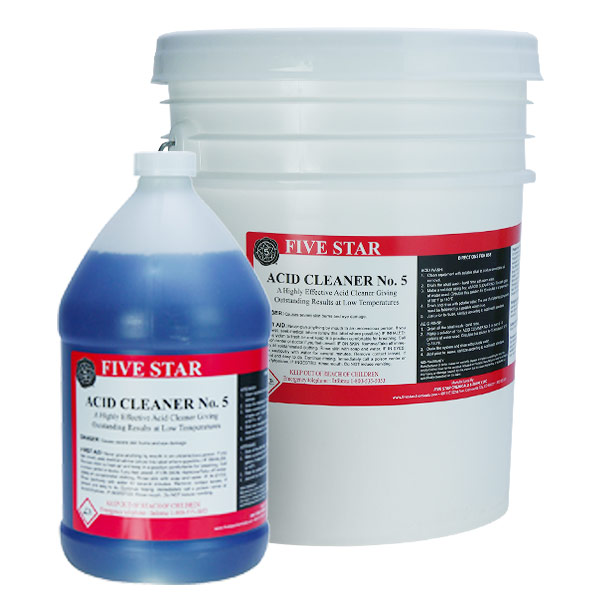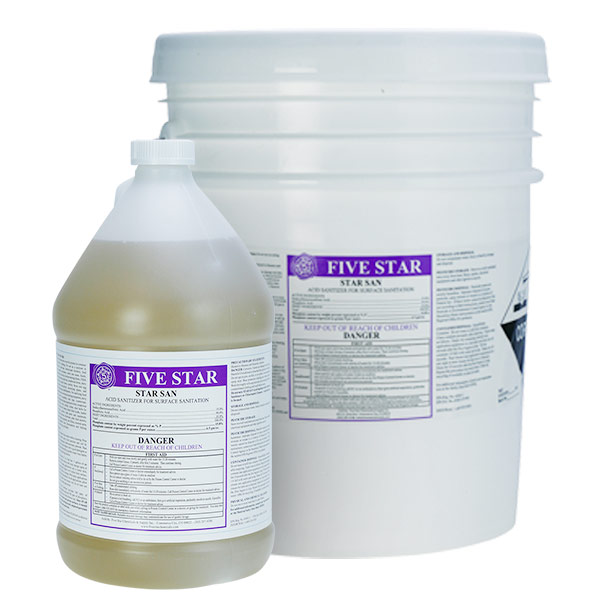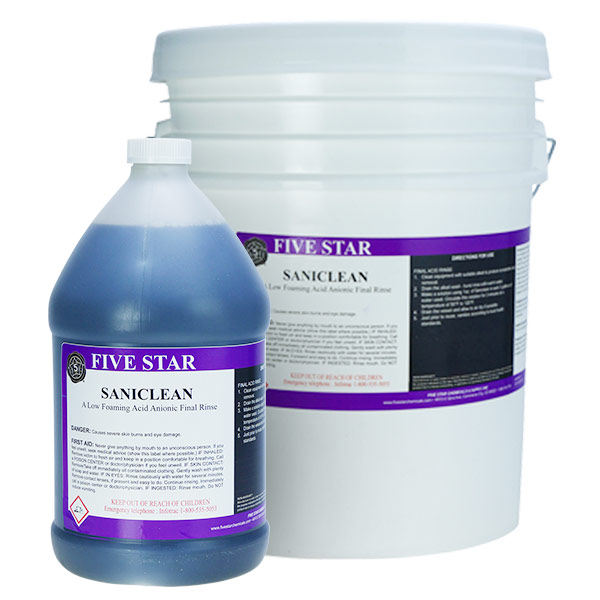Please Call 1-530-247-6909 for Purchasing
In order to properly clean equipment that involves organic matter, you must first eliminate any oils, fats, proteins, starches, or carbohydrates that can be left behind after use. We recommend using alkaline cleaners to break down and remove these potentially hazardous residues.
Alkaline detergents work with a process called hydrolyzing. The cleaner will break down large proteins into small and easily soluble polypeptides, resulting in a quick and effective process. When used properly, Alkaline cleaners improve safety, usage costs, and reduce equipment corrosion.
Step Two – Acid (Acid #5)
They are also more effective against bacteria than alkaline cleaners. However, many heavy soils, resins, oils and glucans are unaffected by acid detergents. This is why they are meant to be a part of a two-step sequential cleaning regimen with Alkaline cleaners.
We suggest using a nitric/phosphoric acid blend. Nitric acid is the most effective with removing scale and has biocidal properties. When mixed with phosphoric acid, the solution becomes more stable and less hazardous to handle. Acid #5 also provides the added benefit of re-passivating stainless steel surfaces.
After removing all organic material with step 1 and 2, sanitizing will reduce the number of microorganisms and prevent contaminants like mold and bacteria from growing on equipment. The process is usually manual and/or CIP.
Sanitizing may be accomplished with the use of either hot water or chemicals. The process generally involves either immersing the object in a sanitizing solution for a specific amount of time or spraying/wiping the object with the solution and allowing it to air-dry.
Chemical sanitizers and final rinse products can vary in their effectiveness depending on the concentration, temperature, and contact time required.
Sanitation only works on clean equipment that has been properly rinsed and dried. Any residual dirt, alkalis, or caustic will prevent it from working correctly and killing bacteria.
Saniclean and Star San are anionic acids that work by creating a negative charge to attract positively charged bacteria. They are both stable in hot or cold temperatures and work in the presence of organic matter. Anionic acids are non-corrosive to stainless steel but can be corrosive with iron.



